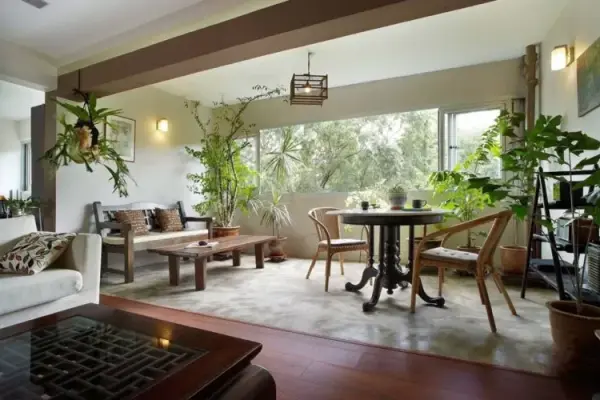An eco-friendly home is no longer a luxury—it’s a necessity. In 2025, the cost of traditional heating rose by 40%, while solar panels for homes dropped to $2.50 per watt. It’s worth noting that sustainable construction integrates energy-efficient technologies, renewable energy sources, and environmentally friendly materials into a cohesive system. Low-carbon technologies and eco-design ensure a home’s energy independence. A smart home with proper insulation can reduce heating costs by tenfold—like a finely tuned musical instrument, where every component works in harmony.
What is an eco-friendly home: Principles of green construction

An eco-home represents a new generation of housing. The primary goal is to minimize environmental impact while maximizing comfort for residents. An energy-efficient home consumes 50-90% fewer resources compared to traditional buildings. Modern certification standards like LEED and BREEAM help achieve maximum project sustainability.
“A passive house is not just about energy-saving technologies. It’s a philosophy of comfort, where every element contributes to creating an ideal microclimate with minimal resource consumption.” — Dr. Mark Anderson, California Institute of Energy Efficiency
In my work with private clients, I often notice the surprise of eco-home owners. Heating bills are indeed significantly lower. It’s not always easy to implement everything at once, but the results exceed expectations. In Ukraine’s climatic conditions, green construction technologies are particularly relevant—from the Carpathians to the steppe regions. Modern passive house certification standards help achieve maximum energy efficiency in construction.
Energy-saving appliances and smart home solutions
 Modern energy-saving solutions are the foundation of an eco-friendly home. Class A+++ appliances consume 70% less electricity. A smart home with automated lighting and climate control saves an additional 25% of energy annually.
Modern energy-saving solutions are the foundation of an eco-friendly home. Class A+++ appliances consume 70% less electricity. A smart home with automated lighting and climate control saves an additional 25% of energy annually.
Thus, choosing the right household appliances pays off within 3-5 years. In one recent project, replacing an old refrigerator with an energy-efficient model saved a family $300 per year. Isn’t that a compelling reason to upgrade your appliances?
Renewable energy sources: The path to an energy-independent home
Solar panels for homes are a key component of autonomous energy supply. A 5 kW system, depending on the region and season, covers 40-70% of a household’s annual energy needs. Solar collectors for hot water pay off in 4-6 years with installation costs starting at $3,000, but they require regular maintenance and antifreeze replacement.
Geothermal energy is becoming more accessible each year. It’s known that heat pumps work efficiently down to -7°C, requiring backup heating sources at lower temperatures. Heat recovery in real-world conditions returns 75-85% of the energy lost during ventilation. According to renewable energy statistics, the share of clean energy in the EU has risen to 24.5%.
“Our family in Oregon installed solar panels in 2022. Over three years, an 8 kW system saved us $4,200 on electricity. It’s especially satisfying to see the meter spin backward on sunny days. Though, in winter, output drops by 60-70%.” — Jessica Clark, eco-home owner
Efficient water use and resource conservation
Modern water-saving solutions allow for reduced consumption of this valuable resource without compromising comfort.
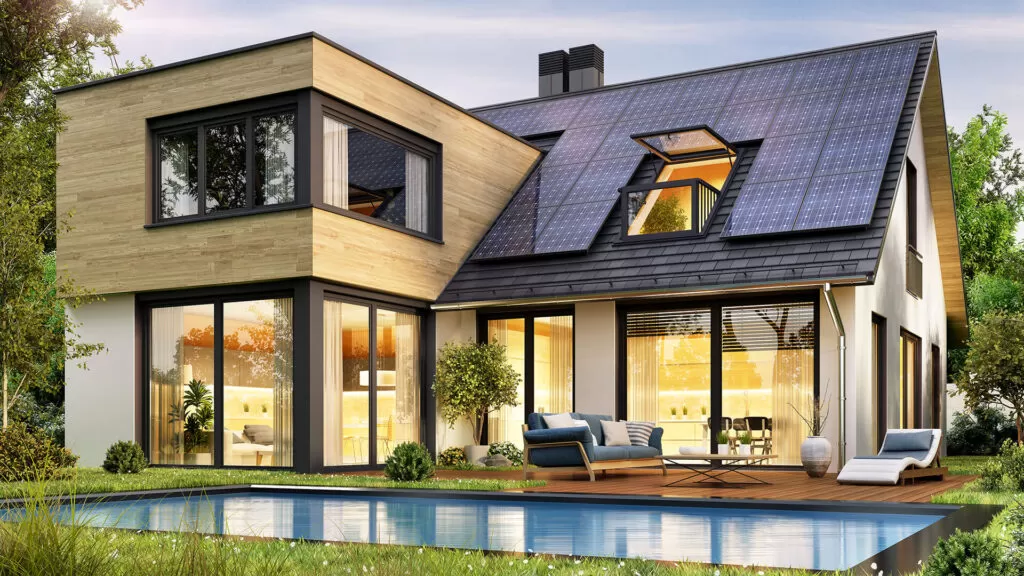
Water-saving systems reduce consumption by 40-60%. Rainwater harvesting covers irrigation and technical needs. Modern filters purify water to drinking quality right in the home.
Considering structural features, greywater from showers and washing machines can be treated and reused. This saves up to 1,500 gallons of water monthly.
Here’s a comparative table of water-saving technologies for an eco-friendly home:
| Technology | Water savings (%) | Installation cost ($) | Payback period (years) |
|---|---|---|---|
| Rainwater harvesting | 30-50 | 2,500-5,000 | 6-8 |
| Greywater recycling | 40-60 | 3,000-7,000 | 8-12 |
| Water-saving plumbing | 20-30 | 500-1,500 | 2-3 |
| Drip irrigation | 50-70 | 800-2,000 | 3-5 |
The comparison shows that rainwater harvesting and water-saving plumbing have the fastest payback. Greywater recycling requires larger investments but offers maximum water savings.
Planning and stages of creating a turnkey eco-friendly home
Eco-home design begins with analyzing the site and climate. Building orientation relative to cardinal directions determines solar heating efficiency by 40-50%. Bioclimatic architecture accounts for wind patterns, terrain, and regional seasonal features. Key stages: design (2-3 months), obtaining permits (1-2 months), and passive house construction (6-12 months).
A structured planning approach helps avoid common mistakes and overpayments:
- Energy audit of the site and resource needs assessment
- Choosing certification (LEED, BREEAM, national standards)
- Calculating the payback of energy-efficient solutions
- Selecting qualified contractors with green construction experience
- Phased implementation based on priorities and budget
This sequence minimizes risks and allows budget control at every stage.
Is it worth rushing to order a turnkey green home immediately? In one project last season, phased implementation allowed a family to start saving just six months after initial improvements.
Eco-friendly materials and modern insulation
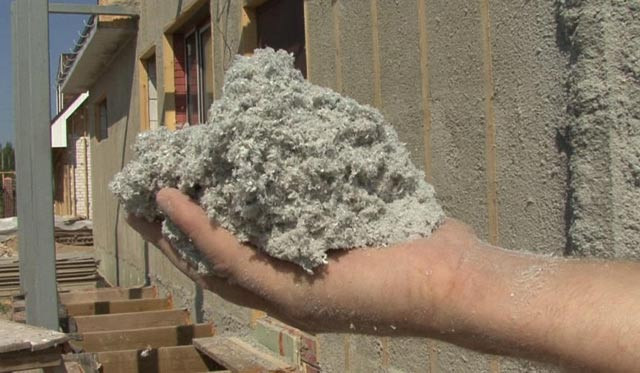 Eco-friendly materials define the quality of the indoor environment. Bamboo grows ten times faster than trees, making it an ideal finishing material. Recycled materials reduce the carbon footprint by 35% compared to virgin resources. Natural home insulation from hemp or sheep’s wool is a safe alternative to synthetic insulators.
Eco-friendly materials define the quality of the indoor environment. Bamboo grows ten times faster than trees, making it an ideal finishing material. Recycled materials reduce the carbon footprint by 35% compared to virgin resources. Natural home insulation from hemp or sheep’s wool is a safe alternative to synthetic insulators.
In practice, I often notice a pattern: proper insulation is more important than expensive energy-efficient windows. Considering structural features, a 200-300 mm insulation layer reduces heat loss by 3-4 times compared to basic 50 mm insulation. Green roofs with living plants act as an additional insulation layer. Airtightness is critical—small thermal bridges can negate the effect of costly insulation. Vapor barriers prevent condensation and mold, issues that can undermine efforts to create a healthy microclimate.
Waste minimization and recycling in an eco-home
Effective waste management is an integral part of an eco-friendly lifestyle in a green home.
Waste reduction starts with planning. Composting organic waste yields 200-400 kg of fertilizer annually. Separate collection increases recycling to 80%. Household biogas plants convert waste into energy.
“Proper waste sorting isn’t complicated—it’s a habit. A family of four can reduce landfill waste by 70% by correctly sorting and composting organics.” — Ecologist David Thompson
Energy-efficient lighting and smart home automation
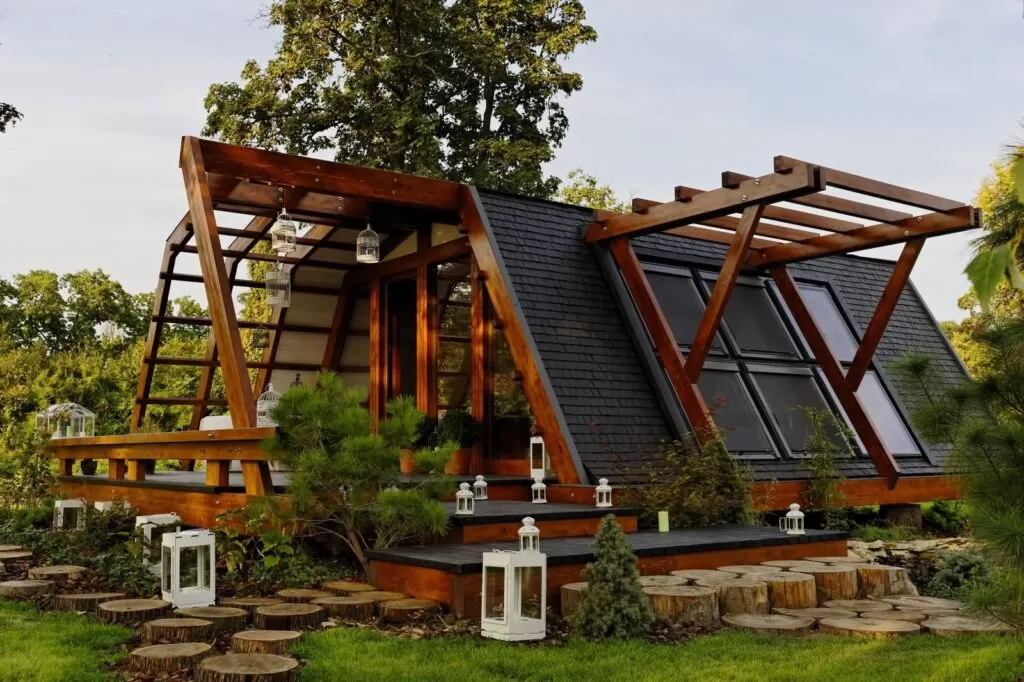
LED lighting consumes ten times less power than incandescent bulbs. Its lifespan reaches 25,000 hours without replacement. Motion sensors and timers reduce electricity use by 30-40%, acting as invisible helpers in the home.
Lighting automation adapts to the family’s lifestyle. Natural light through energy-efficient windows reduces the need for artificial lighting during the day—nature itself becomes a source of comfort. Smart management with energy-saving appliances saves up to $200 annually for a family of four.
Air quality and microclimate: Ventilation with heat recovery
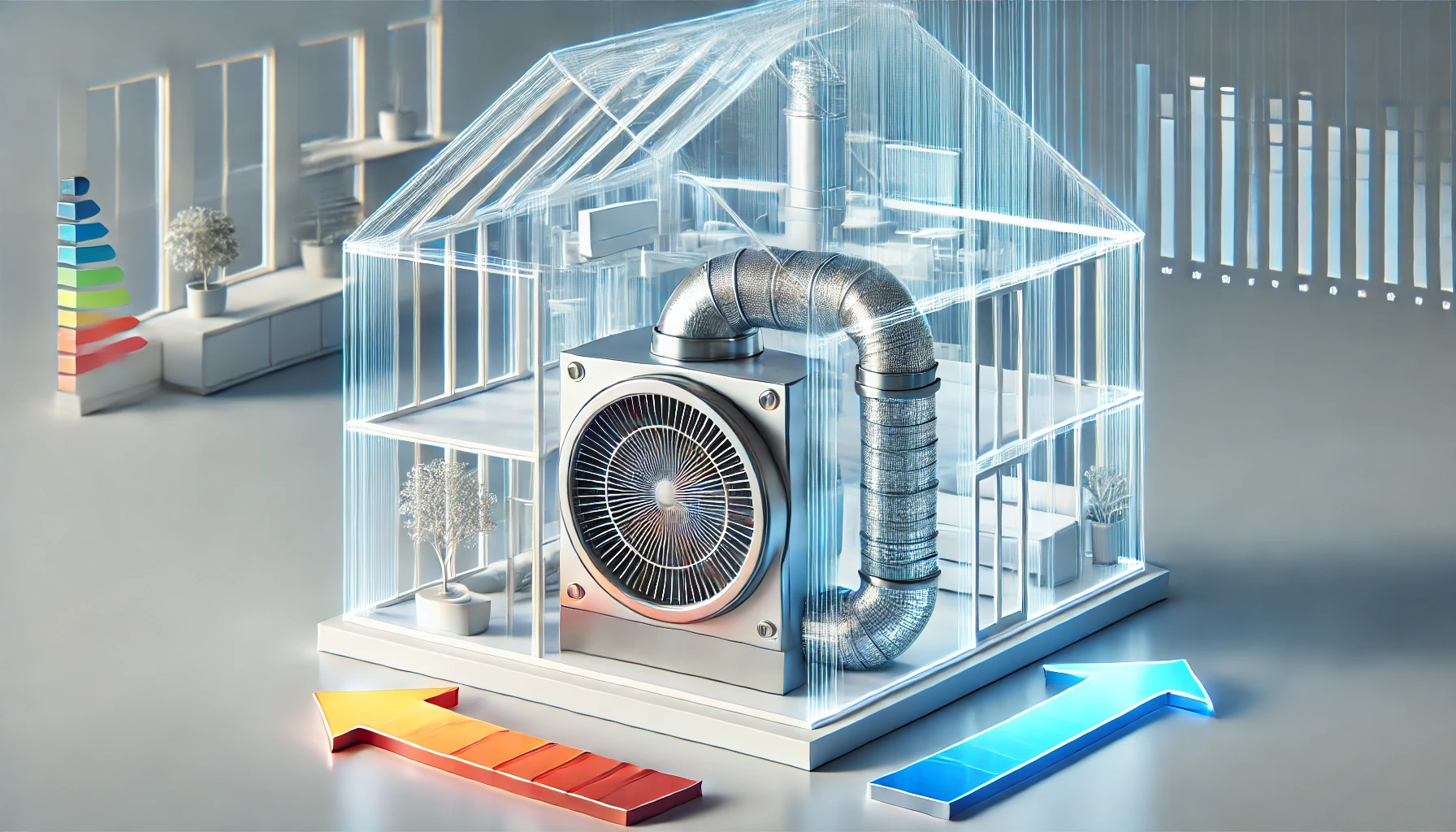 Ventilation with heat recovery ensures a constant supply of fresh air without heat loss. In real-world conditions, recuperators achieve 75-85% efficiency—an impressive figure with regular filter maintenance. HEPA filters capture 99.97% of 0.3-micron particles, creating a near-sterile atmosphere but require replacement every 6-12 months.
Ventilation with heat recovery ensures a constant supply of fresh air without heat loss. In real-world conditions, recuperators achieve 75-85% efficiency—an impressive figure with regular filter maintenance. HEPA filters capture 99.97% of 0.3-micron particles, creating a near-sterile atmosphere but require replacement every 6-12 months.
Houseplants act as living air filters—the green lungs of a home. Snake plants absorb formaldehyde, while peace lilies remove ammonia and benzene. In one project last season, CO2 levels dropped by 40% after installing a “green wall” with 50 plants. Note that plants require care and can become allergen sources if improperly maintained.
Here’s data on air-purifying plants for an eco-friendly home:
| Plant | Purifies from pollutants | Cleaning area (m²) | Care difficulty |
|---|---|---|---|
| Snake plant | Formaldehyde, xylene | 10-15 | Low |
| Peace lily | Ammonia, acetone, benzene | 8-12 | Medium |
| Spider plant | Carbon monoxide, xylene | 6-10 | Low |
| Ficus benjamina | Formaldehyde, trichloroethylene | 12-18 | Medium |
Plant selection depends on room size and care skills. Snake plants and spider plants are ideal for beginners, requiring minimal care while effectively purifying air.
Common mistakes in eco-home construction: How to avoid them
Learning from others’ mistakes can save time and money when implementing your eco-home project.
Common beginner mistakes in green construction are obvious: overestimating winter solar generation, inadequate envelope sealing, and skimping on ventilation form the classic trio. Incorrect window orientation reduces efficiency by 30-40%, turning an eco-home into an ordinary building. Lack of vapor barriers leads to condensation and mold—issues that negate all efforts.
“I’ve seen homes with expensive solar panels but neglected basic insulation. The result? High heating bills despite ‘green’ solutions. The priority is always the same: first reduce resource consumption, then generate power. And a professional energy audit is a must—otherwise, you might waste money.” — Engineer Alexey Petrenko, 15 years in eco-construction
Is it better to buy a ready-made eco-home or build one yourself? Every case is unique, but understanding core principles helps avoid costly mistakes.
Don’t wait for global changes—start your journey to an eco-friendly home today. Install smart lighting, improve insulation, or simply begin sorting waste. Sustainable construction is about consistent steps toward energy independence without compromising comfort. Every decision brings us closer to a future where comfort aligns with planetary care.
